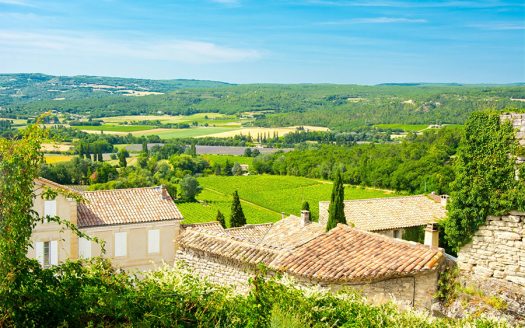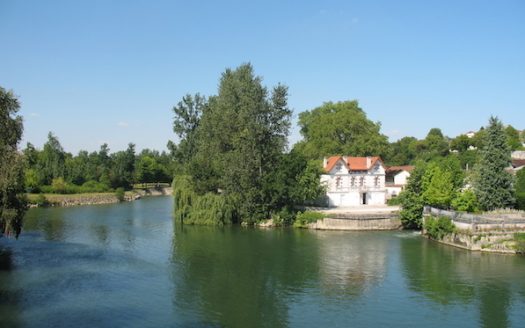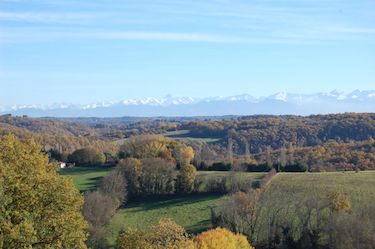
The Guide to Buying French Property Privately
The process of buying French property privately is well regulated and not difficult but it does differ from the U.K. system and it does take place in the French language! 40% of French Property is bought and sold privately, but mainly by the French.
Handy hints to remember throughout the purchasing process
- Research well but don’t believe everything you see online. Check and double check!
- Remember that throughout the purchasing process you will need to do everything that a French estate agent would do. Some Notaire’s may help you and others may not, so be prepared to work, hard at overseeing the process
- Never forget that when it comes to legal matters a little knowledge of the French language can be a dangerous thing. It is worth considering whether you need a translator at any stage in your property buying.
Having had your offer to buy accepted, the vendor will contact his or her Notaire and ask him to prepare
The Compromis de Vente ( first contract) which will include the following information:-
- Civic status of all sellers and purchasers
- Description of the property with the cadastral (land plan) references and the surface area
- The agreed price
- The estimated Notaire’s fee
- Information on the status of the Dossier Diagnostic Technicque reports
- Any conditional clauses (conditions suspensive) which are anything that is vital to the purchase and without which the purchase will not go ahead i.e. mortgage finance (for which details of the organisation granting the mortgage, the rate of interest and the term must be quoted), planning permissions etc.
- Circumstances under which the deposit may be forfeited
- Obligations and declarations of the vendor
- Target completion date
- List of any furniture and fittings included in the purchase
It is vital to ensure that any conditions, Conditions Suspensive, which you feel must be met before you can sign the final Acte are carefully listed in the Compromis de Vente, these could include the need for you to obtain a mortgage (for which you must state the lender, the interest rate and the term of the mortgage you are applying for); planning consent, confirmation of any possible rights of way or other easements on the property etc. Healey Fox recommend BNP whom are our trusted mortgage partners:
https://www.healeyfox.com/french-property-mortgages/
If you believe you may need some building work done to the property or if you wish to change the property with the use of a builder, it is wise to get estimates for this work before you sign the Compromis de Vente in case the cost means that you do not wish to proceed with the purchase or you can use the estimate as a final negotiation point on the price.
Once the Compromis de Vente is signed by all parties there is a 10 day ‘cooling off’ period for the buyers only. This period starts the day after the signed Compromis de Vente is received. If during this period you wish to withdraw from the purchase you must notify the agent or the Notaire in a letter sent by Recorded Delivery. Once the ‘cooling off’ period is over the deposit (5-10% of the purchase price) is due and you will need to send it to the Notaire who will hold it in a non-interest bearing client account.
Get the best Exchange rates
Sorting out the transfer from sterling to euros of the finances for the purchase needs to be done at the same time as the preparation and signing of the Compromis de Vente. Obviously, if you are using a French mortgage for part of the purchase these funds will automatically be transferred to the Notaire’s bank account in euros. You will, however, need to arrange transfer of the deposit monies, in euros. Healey Fox work with currency partners Pure FX: https://www.healeyfox.com/euro-exchange-french-property/
Understanding the role of the Notaire
The Notaire is a public officer and a legal specialist who draws up authenticated contracts for clients. Usually both parties use the same Notaire but it is the buyer’s right to choose their own Notaire, should they wish to do so. The costs will remain the same as both Notaires will share the fee. This can have the effect of making the process less efficient.
The charge made by the Notaire is normally 2%-8% of the net property price and you will need to allow for this in planning your budget. The Notaire only receives 1% and the rest of the money is for government taxes and disbursements. The main task of the Notaire in a property sale and purchase is to check that everything listed in the Compromis de Vente is correct. To this end, amongst other things, he or she will check with the Land Registry that the property, as defined in the Compromis de Vente, is owned by the vendor and that there are no charges on the property. These legal searches can take 2-3 months.
Do be aware that a Notaire does not carry out such exhaustive searches as those carried out by a conveyancing solicitor in the U.K. You will need to check with the local Marie for any local planning consents near to your property asking to see the Plan Communale. A Notaire does not have responsibility for advising buyers on the form of contract which they should use for the purchase
Other things you need to do
The form of contract
- The Notaire will want to know under what form of contract you wish to make the property purchase. The disposal of your French Property on your death cannot be made part of a Will.
Under French law your French property cannot be made part of any will that you leave. It is the form of contract that is used to purchase the property that will dictate what will happen to the property on your death.
Basically you can choose one of three forms of contract:-
En Tontine – your property or share of it will pass to a surviving spouse when you die.
En Indivision – if buying as unmarried couple the share of the property belonging to the deceased partner will pass to any children leaving the ownership of the property split between the remaining owner and the child or children of the deceased person.
S.C.I. – Société Civile Immobiliére, a non-trading property owning company
Choosing the form of contract is complicated. There is much information online (but not all of it accurate), if you are lucky, the Notaire may be able to help. However, she is not obliged to assist you and whatever information you receive, it is always worth checking and checking again! If you have a very complicated buying arrangement it may be worth discussing the options with a French Notary based in the U.K.
https://www.frenchnotary.co.uk
Get ready to insure your home in France
- It is a legal requirement to have your French property insured and the Notaire will need to see details of the policy which you will have taken out before the date of signing. The current property owner may be able to assist you with this or you will find lots of companies on line who all speak English.
The over utilities
The current owner should be able to help you with any contact details you need to get all services transferred into your name on the day of final signing. The Notaire will notify the local authority of the change of ownership.
Nearly there!
The Acte Finale or Acte de Vente will contain all the information listed in the Compromis de Vente but in more detail. There will be a fuller description of the property, details of the mortgage, details of the insurance on the property, details of any fixtures or fittings that are included in the purchase, breakdown of the taxes payable and the survey reports will be annexed to the contract. For your part you will need to supply originals of your passport(s), birth certificate (s) and if relevant, marriage certificate(s), divorce certificate(s) and death certificate.
It is wise to keep in touch with the Notaire constantly to ensure everything is proceeding accordingly to plan and don’t book travel to return for the signing of the Acte de Vente until the date has been firmly confirmed.
Dossier Diagnostic Technique
There is a raft of surveys that need to be done before property can be sold in France and the results of these will be annexed to the Finale Acte. These are all paid for by the vendor. However, it is good to be aware that these are not the same as structural surveys which are carried out on U.K. properties.
France does not have a network of property surveyors although there are a few English surveyors who have set up business. If you see something that is worrying you about a property and which believe you would ultimately need a builder to fix for you, it can be wise to get a builder in to provide an estimate. This should be done before the Compromis de Vente is signed and the Notaire will make you aware of any faults that have been thrown up by the reports. Ultimately, the cost of rectifying these faults lies with the purchaser so you need to get a builder’s estimate urgently to ascertain how much it will cost to put right. If you have signed the Compromis de Vente at this stage you need to ensure that you renegotiate the price with the vendor to take account of these costs before the 10 day cooling off period is over. This is vital and you must notify the Notaire by Recorded Delivery that the price is changing or that you are cancelling the proposed purchase within the 10 days from signing the Compromis
The Dossier Diagnostic Technique is the name given to the following collection of reports.
- Asbestos – required for all properties with no planning permission or planning permission granted before 1997
- Lead – only in paintwork, required for all properties built before 1949. This report is valid for 12 months if lead is found or for an indeterminate period if no lead found.
- Termites – survey required only in certain departements. The report is valid for 6 months
- Natural or industrial risks – only required in specific areas. Validity of 6 months
- Gas installations – report valid for 3 months
- Electrical wiring – required if the wiring is over 15 years old. You must declare if you have installed any form of English wiring. Valid for 3 years
- Septic tank – if the fosse septique is found to be defective the owner of the property has 12 months to comply with whatever needs to be done. The installation of a new system can cost between €5000 to €15000
- Energy efficiency
Its time to sign
- One last thing for you to do
There is a clause in the Finale Acte stating that you are buying the house in the condition that exists on the day of purchase. It is wise to check on the property before you go to the Notaire’s office to sign the contract. It is also worth checking that everything you are expecting to be left (and has been listed on the Compromis de Vente) is there and anything you do want to be left has been removed! If you have any problems with what you discover then you must make the Notaire aware.
The Notaire will inform the vendors and buyers when the Acte is ready for signing. He or she will also call for the mortgage funds and/or request final payment from the buyer. These funds must be in the account of the Notaire before the final signing of the Acte.
If you can’t be at the final signing
To complete the Acte the vendors, purchasers and Notaire will need to sign the document. If it is not possible for one more of the vendors or buyers to be present then each one who cannot attend will need to arrange a Power of Attorney – Procuration in advance. This document will be drawn up by the Notaire and will need to be signed in front of a public Notary in the U.K. (There will be a charge for this). The Power of Attorney gives a nominated person (usually a clerk in the Notaire’s office) authority to sign the Acte on your behalf. You will receive a copy of the Acte de Vente before the day of signing and if you are not able to be present in the Notaire’s office it is vital that you understand this document. Some Notaires do send a translation of the contract but if your Notaire is not able to do this then you should employ a translator. It is worth checking with the Notaire whether he or she believes you will need a translator as you will need to book one in advance as there is usually not a lot of time between the Acte de Vente being ready and the date of signing. There are many companies offering legal translations to be found online.
The final signing
It is the Notaire’s responsibility to ensure that all parties to the contract understand the contents of the contract. Some fulfil this role to a greater extent than others! If your Notaire does not speak English it is a good idea to discuss the hiring of a translator with him or her in advance. Just check this before turning up to sign for your new home in France.
Once the Acte is signed by all parties and witnessed by the Notaire, he or she will provide an Attestation, which is a document confirming the transfer of ownership. This will be needed when registering for utilities and other services.
Tax Fonciere
The amount of tax payable in the current year will be proportioned by the Notaire who will notify you of the amount which you will need to repay to the old owners. However, the tax d’Habitation, for the current year, currently still being charged, is not deemed to be payable by the new owner.
Well done, you made it. Welcome to your new French home.




